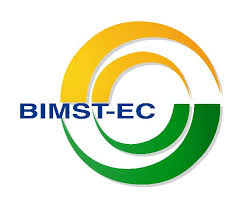 BENAULIM (GOA):Marking the near complete isolation of Pakistan in the region, terrorism is set to dominate the agenda of dual summits of BRICS and BIMSTEC countries India is hosting in Goa October 15-16.
BENAULIM (GOA):Marking the near complete isolation of Pakistan in the region, terrorism is set to dominate the agenda of dual summits of BRICS and BIMSTEC countries India is hosting in Goa October 15-16.
With Pakistan showing no sign of abandoning terrorism as an instrument of state policy, the overarching focus of India will be to get both BRICS and BIMSTEC groupings to back a collective approach to combating the scourge. India will be pressing these groupings to support a non-segmented approach to terror, which is necessary in view of the propensity of some countries to portray terrorists as freedom fighters, as Pakistan has done in the case of militants active in Kashmir.
Terrorism tops agenda
There is overwhelming support in both BRICS and BIMSTEC for forging a united global front against terrorism as all these countries have borne the brunt of terrorism and violence at one time or another. But in combating terrorism, geopolitical games should be avoided. This will be India’s message to China as Prime Minister Narendra Modi engages Chinese President Xi Jinping in a bilateral meeting to persuade him to change Beijing’s stand on the sanctioning of the UN designated terrorist Masood Azhar, head of Pakistan-based terrorist group Jaish-e-Muhammed, by the United Nations Security Council. Recently, China extended the technical hold on the listing of Azhar, the prime suspect in the Pathankot airbase assault, in the UNSC and later defended it by cautioning India against “double standards and “political gains in the name of counter-terrorism.” India considers Beijing’s stance hypocritical which has emanated from its political compulsions to appease its all-weather ally Pakistan. Against this backdrop, Prime Minister Modi is expected to highlight the perils of this kind of differentiated approach to terror and Pakistan’s continuing practice of cross-border terrorism at both BRICS and BIMSTEC summits. The fact that all SAARC countries joined India in boycotting the SAARC summit in Islamabad on account of common concerns on terrorism underscores the marginalisation of Pakistan in the aftermath of the Uri terror spree.
Why BIMSTEC?
With the SAARC floundering, the spotlight is on the seven-nation BIMSTEC grouping, which has been around for nearly two decades, but is now sought to be rejuvenated. The choice of BIMSTEC as an outreach partner for the BRICS summit as well as the decision to hold a full-fledged BIMSTEC summit underlines India’s strategy to keep Pakistan out of these regional engagements. Officials, however, pointed out that the decision to choose BIMSTEC as an outreach partner of BRICS was taken much before the terror strikes by Pakistani militants at an Army Camp in north Kashmir, and hence no hidden agenda should be read into the choice. This official gloss should not obscure geopolitical imperatives that animated this decision.
BIMSTEC versus SAARC?
There are many good reasons for choosing BIMSTEC as the SAARC remains dysfunctional due to chronic India-Pakistan tensions and Islamabad’s obstructionist tendencies in the SAARC. Given deteriorating relations with Islamabad in the wake of the Pathankot and Uri terror attacks, New Delhi did not want BRICS summit to get distracted by grandstanding by Islamabad. Most important, given SAARC’s diminishing status, India decided to focus on rejuvenating the grouping of the Bay of Bengal nations that connect South Asia and Southeast Asia, two important focal areas of India’s neighbourhood policy. The BIMSTEC’s participation as outreach partner at the BRICS summit is set to raise the profile of the seven-nation grouping and impart it the much-needed strategic traction.
The big question dominating the discourse these days is whether BIMSTEC can replace SAARC over the years. It’s too early to predict how it will play out as the current spotlight on BIMSTEC is largely due to the ongoing India-Pakistan spat. However, much will depend on outcomes emanating from the Goa summit, which is expected to unveil an ambitious multi-pronged agenda to upgrade the grouping. Important initiatives in areas of trade and investment, connectivity and counter-terror cooperation are expected at the BIMSTEC summit. “It (BIMSTEC) is a very important platform to carry forwards the process of regional integration in both South and Southeast Asia. BIMSTEC is uniquely positioned as a bridge between the two regions, especially it helps to put the northeastern states of India at the centre stage, as a gateway to and from the southeastern region,” Preeti Saran, secretary (west) in India’s foreign office, said ahead of the summit.
Taking a long-term view, it’s in India’s interests to invest BIMSTEC with greater economic and strategic content through tangible initiatives. The challenge for BIMSTEC will be to avoid the SAARC trap of making grand declarations without implementing concrete initiatives on the ground. If BIMSTEC can walk the talk, then it has the potential to surpass SAARC, which will always remain hobbled by Pakistan’s posturing, as the preferred forum for achieving regional and trans-regional integration and connectivity.
Author Profile

- Manish Chand is Founder-CEO and Editor-in-Chief of India Writes Network (www.indiawrites.org) and India and World, a pioneering magazine focused on international affairs. He is CEO/Director of TGII Media Private Limited, an India-based media, publishing, research and consultancy company.
Latest entries
 India and the WorldJuly 9, 2024Defying West, India sets $100 billion trade target with Russia
India and the WorldJuly 9, 2024Defying West, India sets $100 billion trade target with Russia India and the WorldJuly 5, 2024India at SCO: Takes swipe at Pakistan for cross-border terror, pushes alternative to BRI
India and the WorldJuly 5, 2024India at SCO: Takes swipe at Pakistan for cross-border terror, pushes alternative to BRI India and the WorldJune 14, 2024Modi’s Day 1 in Italy: Bonding with Britain, France
India and the WorldJune 14, 2024Modi’s Day 1 in Italy: Bonding with Britain, France India and the WorldJune 13, 2024G7 summit in Italy: Modi to showcase India as leader of Global South
India and the WorldJune 13, 2024G7 summit in Italy: Modi to showcase India as leader of Global South






